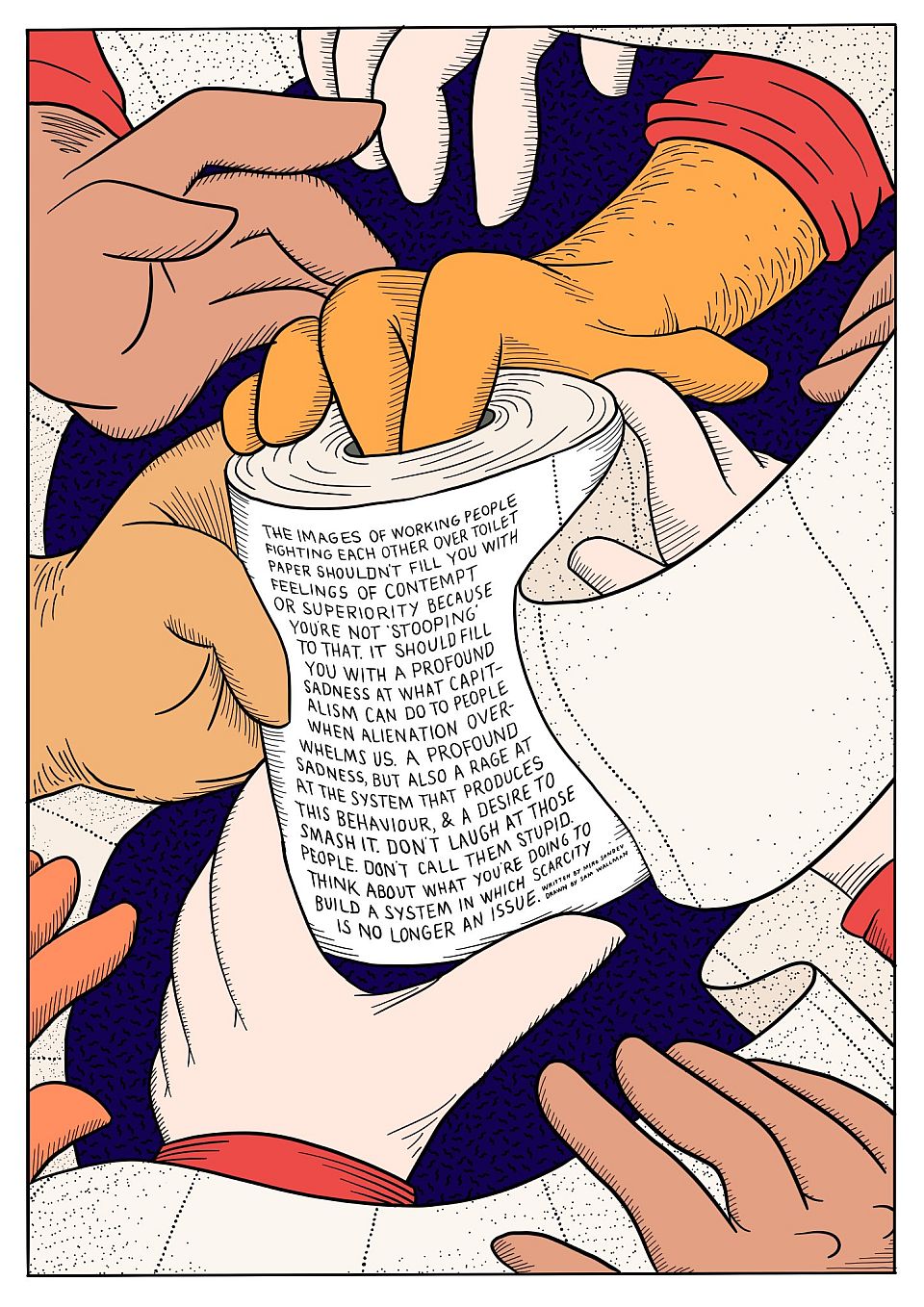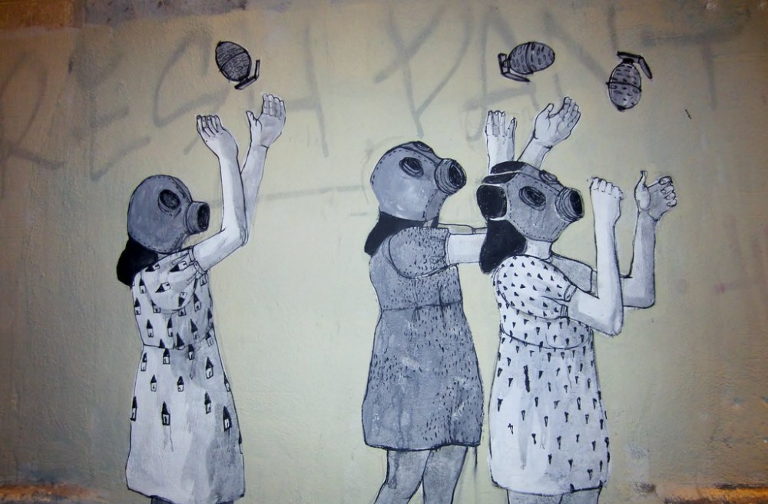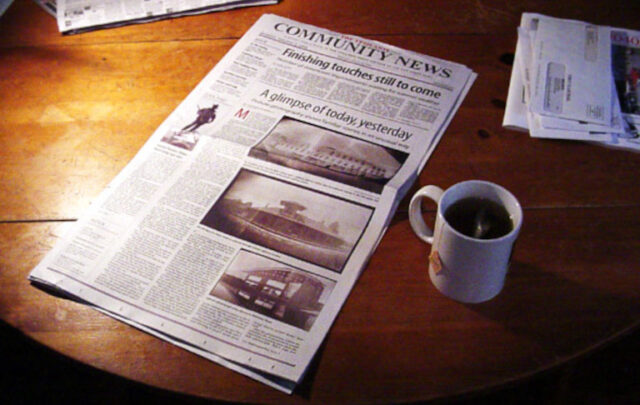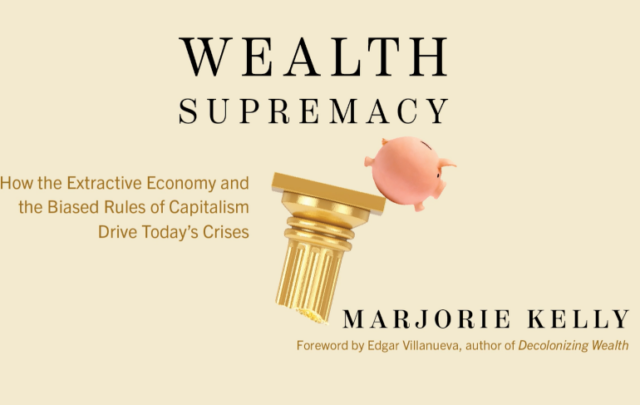“May you live in interesting times“. A curse once assigned Chinese origin, now thought to be apocryphal, it’s deceptively mild until you realize you have no resistance to a novel, viral load of interestingness. We feel like we can’t blink, yet our eyelids are getting very heavy. We’re anxious, grateful, bewildered, hopeful, overwhelmed, empathetic, angry, sleepy and wired. Housebound in a springtime lockdown to hope for the best, prepare for the worst, and flatten the curve.
The Covid-19 quarantine has given us time to reflect on the work we’ve done toward “creating capacity”, that is, resilience and resources for when “normal” breaks down. We’d like to share some thoughts about that work, and our focus going forward.
Author/archdruid John Michael Greer talks about “catabolic collapse“. That’s not the guns & ammo, post-apocalyptic-yet-still-powered-by-capitalism scenario favored in the media, but an ongoing process of societal disintegration. Looking at our mainstream institutions, economics or beliefs, it’s clear that we’ve been collapsing for a while. Events like pandemics punctuate the catabolic curve with sudden, eye-popping jumps set against the processes bedrocked as background, never foreground. Welcome to the apocalypse, we’ve saved you a seat.
The origins of the word “apocalypse” point to an “unveiling”, dropping illusion and finding revelation. As our global production systems and social institutions (eg. healthcare, education) are suddenly overwhelmed, their basic unsuitability is exposed. Just weeks ago so mighty, economies now sputter when faced with this latest adversity. As many have noted, this sudden spike in the process of collapse portends a larger undertaking in ecological and social entropy. And as Covid-19 takes its human toll worldwide, we’ve begun to see the best and worst that humanity can offer in its choice of loyalties, whether to human life or to economic systems, and the power struggles in finding the right balance (if such a thing exists). It’s another opportunity to consider, what is inherent in us as people, and what is the product of our systems? Growing up in systems preaching that “greed is good”, that “the only social responsibility of businesses is to increase profits”, or that “there is not alternative”, is it any wonder that the worst reactions to the crisis are marked by individualism, paranoia and accumulation?

Natural systems are rebounding because pollution and emissions are down, but it’s impossible to fist-pump about this while people are suffering, dying, or working beyond capacity to save lives. In fact, it’s a good time to question the very validity of work: which services are essential, how to use our “free time”. What solutions can the market offer to the health crisis, to overcrowded hospitals, to breaks in supply lines of essential goods and services? To those unable to meet their rent, mortgage or future expenses? Some claim our global, industrialized model is to blame for the virus, others cry that “the cure is worse than the disease“, that the economic effects of quarantining will create more destruction than the virus itself.
We think these predictions are not endemic to economic science, but to a history of accumulatory, command and control dynamics which, via longstanding institutions including patriarchy and colonialism, have found their apex in capitalist realism: “the widespread sense that not only is capitalism the only viable political and economic system, but also that it is now impossible even to imagine a coherent alternative to it.” Short a few weeks of predatory feeding, the growth-based model shows its weakness against the apocalypse. Another veil is lifting.
Could this be the herald of another political economy based on abundance, not scarcity and greed? We can help nature to restore itself, cut down emissions, our consumption of mass manufactured and designed-to-break-down crap. We can radically curtail speculative ventures and fictitious commodities. Slash inequality from the bottom up, spend our time away from bullshit jobs to reimagine the world. Use this free time to reconnect, cherish our aliveness, break out of containment, care for each other, grieve what we’ve lost and celebrate what we still have.
We do have the frameworks, we have been creating this capacity for quite a while. From localized, yet globally connected systems of production that can rapidly respond to urgent needs without depending on massive global chains, to ways to organize the workforce into restorative and purpose-oriented clusters of people who take care of each other. This new economy will need a new politics and a more emancipated relation to the State: we have tried it and succeeded. What new worlds (many worlds are possible) can we glimpse from under this lifted veil?
Here’s a question: did you already know about these potentials? Are we still having this conversation among ourselves, or have these terrible circumstances gifted us with an opportunity for (apocalyptic) clarity? The normal is collapsing, while our weirdness looks saner than ever before.
Timothy Leary famously called for us to “find the others“. I think that the others are all of us, and this may be the moment where more of us can recognise that. A few years ago, we created an accessible, easy to use platform to share the potential of the Commons with everyone. Today it’s more relevant than ever. The projects we work on (Commons Transition and DisCO) are based on two simple precepts:
- Everyone can become a commoner
- Commoners can make more commoners
This is why we strive to create accessible and relatable frameworks for people to find the commoner within themselves. But we need to grow out of our bubbles, algorithmically predetermined or not; we need to rewild our message beyond the people who already know. Movements like Degrowth, Open Source software and hardware, anti-austerity, Social Solidarity Economy, Ecofeminism, Buen Vivir…we are all learning from each other. We must continue to humbly and patiently pass the knowledge on, listen to more voices and experiences, and keep widening the circle to include everyone, until there are no others.
Please share this article with anyone who may benefit from these “crazy ideas” that suddenly don’t look so crazy anymore. Start a conversation with people who, aghast at the rapid collapse and lack of reliable systemic support, are eager for new ideas, solutions, hope. The greatest enclosure of the commons is that of the mind: our capacity to imagine better worlds, to be kinder to each other and to the Earth. This will not be an easy or straightforward process. We need to hold each other through the loss and pain. We need to keep finding the others among all of us, until there are no more.
- Cover art photograph by Antonio Marín Segovia
- “On Panic Buying” by the Sam Wallman and Miroslav Sandev





